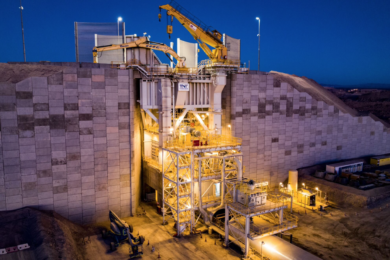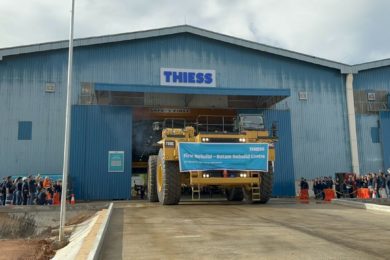Australia’s increasingly cash-strapped small to medium cap mineral explorers have been encouraged to keep the door open to potential China-based investment dollars – but to take a far more pragmatic approach to securing agreements for long-term project backing. The sector has been assured, however, that Sino investment funds are still available despite the global meltdown in financial markets and a slight easing in China’s growth.
The ‘open door’ encouragement was proffered by Adelaide-based specialist China-Australia investment consultancy, Kimberley Global, which this week is undertaking its third interchange this year in China to attract investment dollars to this sector of Australia’s mining industry.
“Equity providers in China are well aware that many Australian resources are being caught out by the rapidity of the meltdown and the drying up of traditional sources of capital for their exploration, drilling and mine developments, ” Kimberley Global principal, Dr Xian Tao, said. “Some of these companies will have no choice but to urgently access new sources of capital to stave off closure, asset sales or merger and to allow at least some exploration activity to ‘survive’ the impact of the financial meltdown. China is a willing participant to assist in this market dynamic but some changes are needed in the manner in which these Australian junior resources entities redesign their business strategies and balance sheets if they are to be reliant on future China backing.”
A former Visiting Research Fellow at Sydney’s University of Technology and Associate Professor, Earth Sciences at China University of Geosciences (Wuhan), Dr Tao said some needed changes are fundamental but are important to the way Chinese investors conduct and finalise resource investment transactions.
“There are three business cornerstones that will encourage China backers to close a deal – and that is, the robustness of an Australian minerals project, how dynamic is its management group, and good communication,” Dr Tao said.
“Chinese resources investors have an open mind but need to actually see and “walk” the ground to get a sense of the expectation and flexibility within a project and how it measures against wildly fluctuating markets for metals commodities. They must be allowed sufficient time to undertake their own due diligence and not be pressured in the current equities environment, to close a deal simply because of the shortening financial horizons facing an Australian explorer,” she said.
“In addition, the culture, customs, institutions and regulation gaps between how the Chinese do business and how we do it here in Australia, are paramount – so good communication matters as much in turning a successful deal as a project’s own appeal. For example, some resources entities have operated under the belief that having an interpreter is enough. However, if that interpreter does not understand joint venture negotiations or have an appreciation of mining and exploration, then misunderstanding arises and dilutes the progress of the business discussions.
“I encourage Australian explorers to get to understand particularly how to deal with government – owned companies in China – a key source for investing resources funds overseas.”
Dr Tao said she remained positive about China’s economic future as its huge domestic market would continue to drive long-term and strong growth. “The impact on China banks of the worldwide financial crisis has been extremely small, China holds some $2 trillion in reserves and its local economy is robust under the four trillion yuan stimulus plan – and that aids the investment pool available to Australian explorers.”









